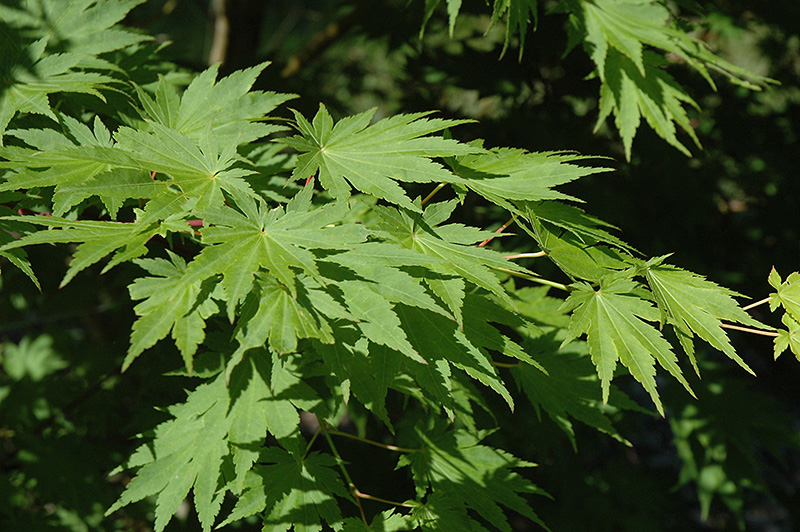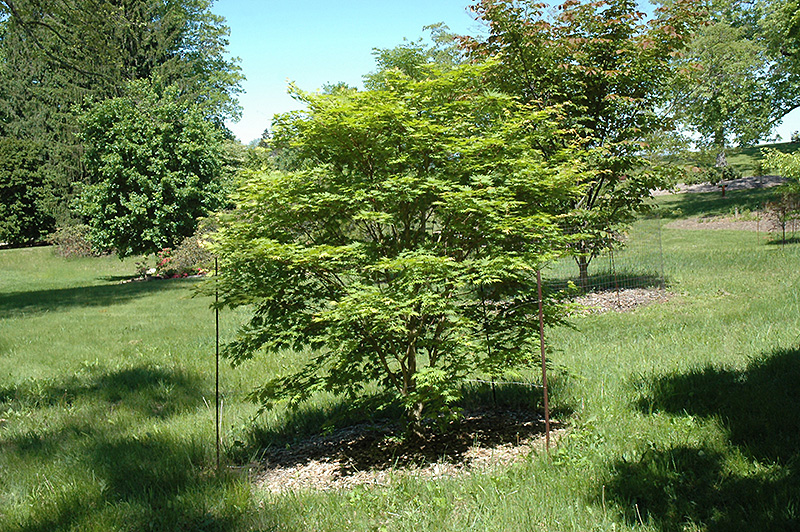>> Home
Sode No Uchi Dwarf Siebold Maple
Acer sieboldianum 'Sode No Uchi'
Height: 12 feet
Spread: 10 feet
Sunlight:
![]()
![]()
Hardiness Zone: 4b
Description:
The gold-green foliage of this natural dwarf glows throughout the summer; compact habit is perfect for small gardens, containers and bonsai; vibrant gold to red fall color
Ornamental Features
Sode No Uchi Dwarf Siebold Maple has lime green deciduous foliage on a tree with a round habit of growth. The serrated lobed palmate leaves turn outstanding shades of gold, orange and scarlet in the fall.
Landscape Attributes
Sode No Uchi Dwarf Siebold Maple is a deciduous tree with a more or less rounded form. Its average texture blends into the landscape, but can be balanced by one or two finer or coarser trees or shrubs for an effective composition.
This is a relatively low maintenance tree, and should only be pruned in summer after the leaves have fully developed, as it may 'bleed' sap if pruned in late winter or early spring. It has no significant negative characteristics.
Sode No Uchi Dwarf Siebold Maple is recommended for the following landscape applications;
- Accent
- Mass Planting
- Hedges/Screening
- General Garden Use
- Container Planting
Planting & Growing
Sode No Uchi Dwarf Siebold Maple will grow to be about 12 feet tall at maturity, with a spread of 10 feet. It has a low canopy with a typical clearance of 1 foot from the ground, and is suitable for planting under power lines. It grows at a slow rate, and under ideal conditions can be expected to live for 60 years or more.
This tree does best in full sun to partial shade. It prefers to grow in average to moist conditions, and shouldn't be allowed to dry out. It is not particular as to soil pH, but grows best in rich soils. It is somewhat tolerant of urban pollution. This is a selected variety of a species not originally from North America.
Sode No Uchi Dwarf Siebold Maple is a fine choice for the yard, but it is also a good selection for planting in outdoor pots and containers. Because of its height, it is often used as a 'thriller' in the 'spiller-thriller-filler' container combination; plant it near the center of the pot, surrounded by smaller plants and those that spill over the edges. It is even sizeable enough that it can be grown alone in a suitable container. Note that when grown in a container, it may not perform exactly as indicated on the tag - this is to be expected. Also note that when growing plants in outdoor containers and baskets, they may require more frequent waterings than they would in the yard or garden.

